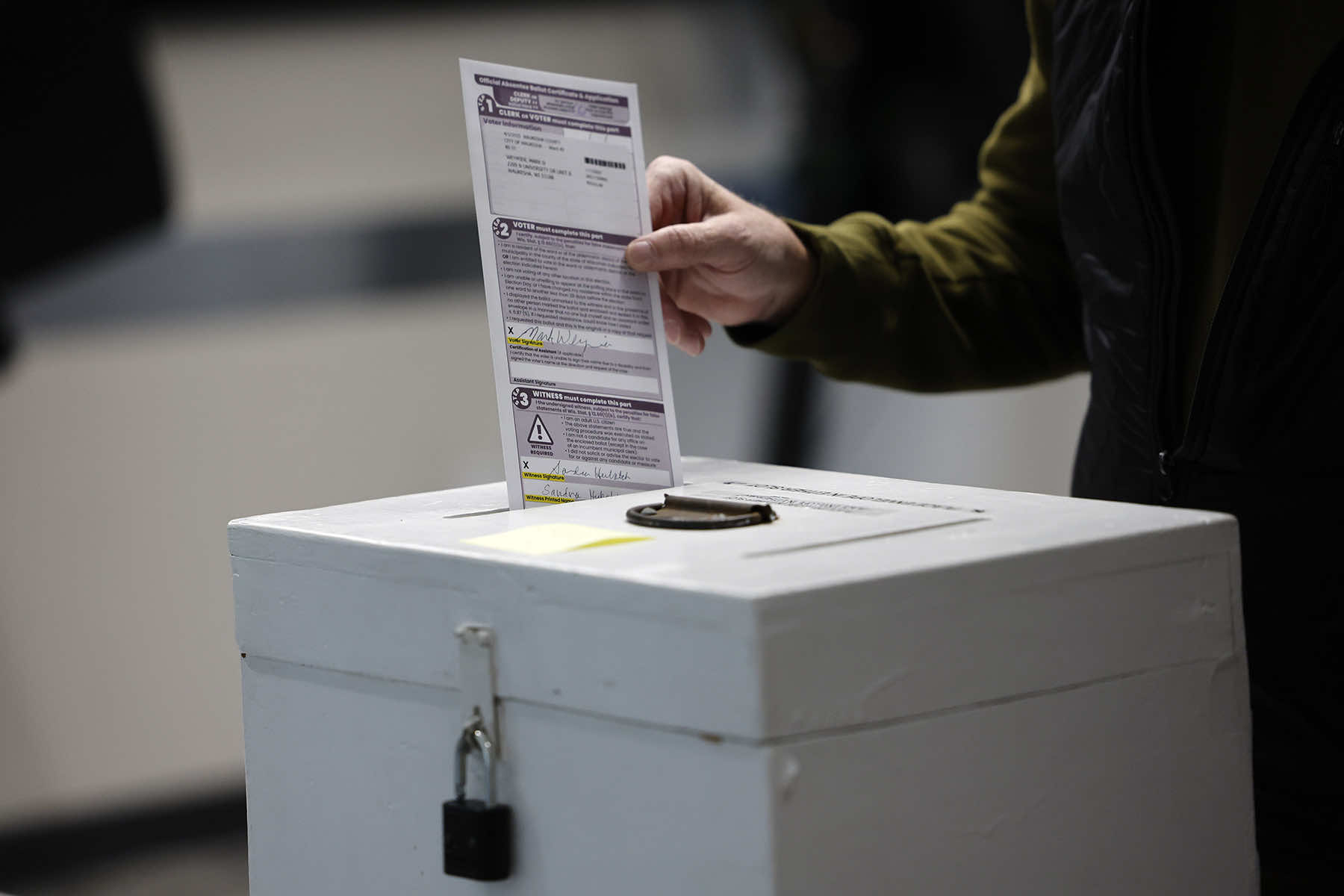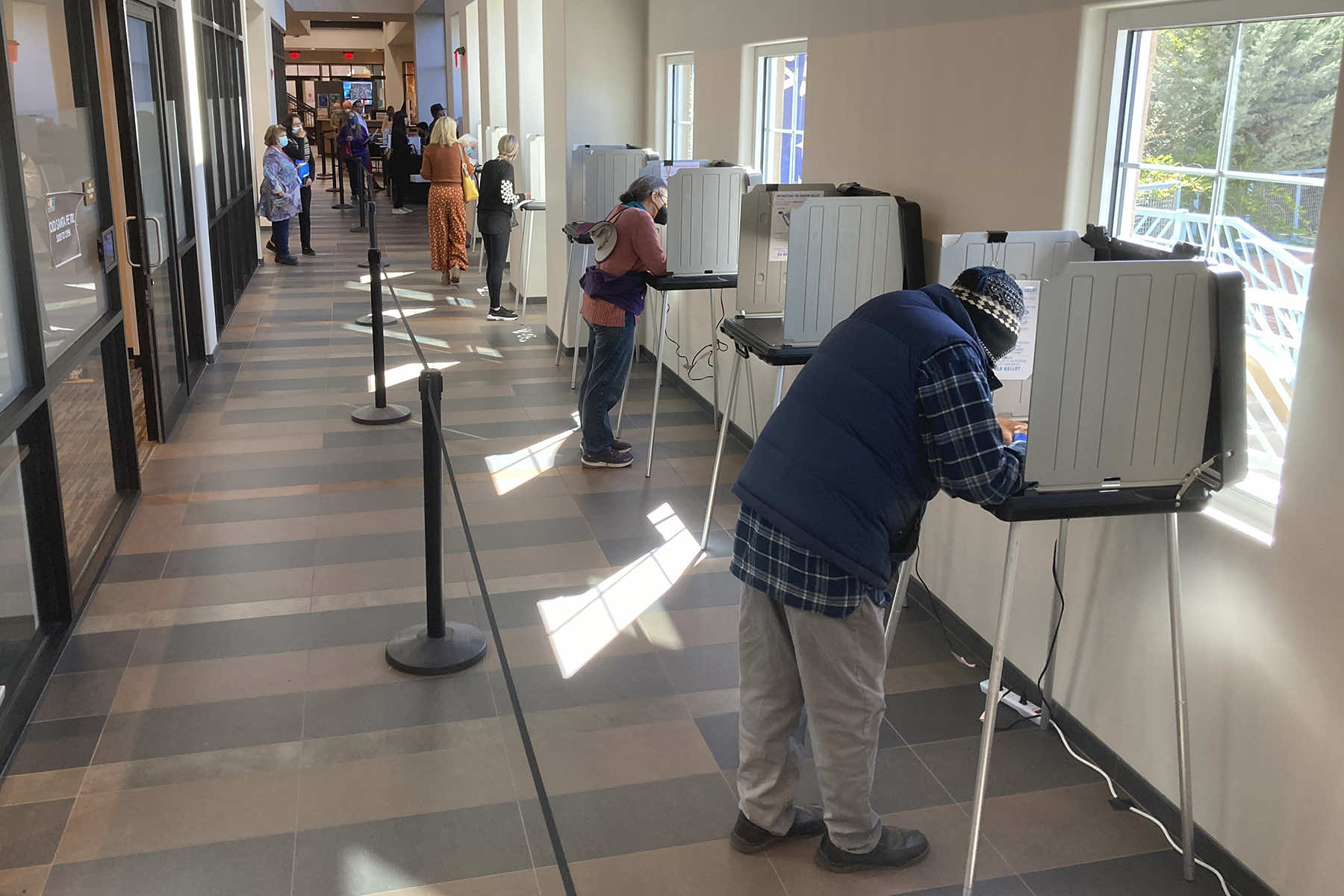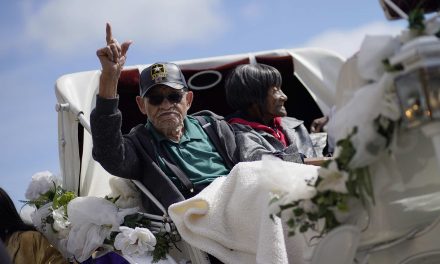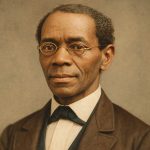
The U.S. House on April 10 approved legislation requiring documentary proof of U.S. citizenship for anyone registering to vote, something voting rights groups warn will disenfranchise millions of Americans, and practically strip them of the right to vote.
The requirement has been a top election-related priority for Donald Trump and House Republicans, who falsely argue it is needed to eliminate instances of noncitizen voting, which is already rare and, as numerous state cases have shown, is typically a mistake rather than part of a coordinated attempt to subvert an election.
It is already illegal under federal law for people who are not U.S. citizens to cast ballots and can lead to felony charges and deportation.
The bill, known as the Safeguard American Voter Eligibility Act, or the SAVE Act, heads to the Senate, where its fate is uncertain because MAGA Republicans do not have a large enough majority to avoid a filibuster. Here is a look at key issues in the debate over a proof of citizenship requirement for voting:
WHO WOULD BE AFFECTED IF THE BILL BECAME LAW?
If it becomes law, the SAVE Act would apply immediately and cover all voter registration applications. While Republicans claim the bill “does not affect currently registered voters,” the reality is more complicated. Voters are routinely removed from rolls due to address changes, data errors, or so-called list maintenance procedures. Anyone who needs to update their name, moves across jurisdictions, or whose status is questioned by a local official would be forced to re-register — this time with proof of citizenship.
Voting rights advocates warn that this would disproportionately impact married women, older adults, low-income individuals, and people of color — especially those without access to birth certificates or valid passports. In practice, the bill creates a new national documentation standard that many Americans will fail to meet, even if they’ve voted legally for decades.
Republican lawmakers have tried to frame this as a benign administrative shift, suggesting voters would “just need to bring in paperwork” if their status changes. But that misrepresents the barriers many Americans face. State roll purges are often conducted with little or no notice, and for those who lack certified documents or live far from election offices, the burden may result in permanent disenfranchisement.
WHAT DOCUMENTS WOULD BE REQUIRED TO REGISTER?
The SAVE Act compels states to reject any voter registration application in which the applicant has not presented “documentary proof of United States citizenship.”
Among the acceptable documents for demonstrating proof of citizenship are:
- A REAL ID-compliant driver’s license that “indicates the applicant is a citizen.”
- A valid U.S. passport.
- A military ID card with a military record of service that lists the applicant’s birthplace as in the U.S.
- A valid government-issued photo ID that shows the applicant’s birthplace was in the U.S.
- A valid government-issued photo ID presented with a document such as a certified birth certificate that shows the birthplace was in the U.S.
The legislation does not account for the millions of Americans who lack access to these documents — including natural-born citizens without passports, elderly residents whose birth records were never digitized, and individuals born in rural areas or at home. Voting rights groups estimate that nearly one in ten U.S. citizens of voting age lack ready access to acceptable citizenship proof.
By requiring these documents at the point of registration, the SAVE Act introduces a strict gatekeeping standard that has no precedent in modern federal voting law. Civil rights groups have described the measure as a calculated restriction designed to shrink the electorate, not protect it.
WHAT IF MY DRIVER’S LICENSE DOES NOT LIST MY BIRTHPLACE OR INDICATE I AM A U.S. CITIZEN?
In general, driver’s licenses do not list a birthplace or indicate that the cardholder is a citizen, even many that are REAL ID-compliant.
REAL ID was passed by Congress in 2005 to set minimum standards for IDs such as driver’s licenses and requires applicants to provide a Social Security number and demonstrate lawful status either as a citizen or legal resident.
After years of delays, any driver’s license used for identification to pass through airport security will have to be REAL ID-compliant beginning May 7. U.S. passports will still be acceptable.
Although states designate REAL ID compliance on driver’s licenses with a marking such as a gold or black star, that alone would not indicate U.S. citizenship. People who are legal residents but not citizens also can obtain a REAL ID.
States are currently not required to label IDs with a “citizen” mark, although a handful of states, including Michigan, Minnesota, New York, Vermont, and Washington, offer a citizen-only REAL ID alternative that might meet SAVE Act requirements.
Adoption of REAL ID has been slow. As of January 2024, about 56% of driver’s licenses and IDs in the U.S. were REAL ID-compliant, according to data collected by the Department of Homeland Security.
WHAT ABOUT PEOPLE WHO CANNOT ACCESS BIRTH OR MARRIAGE CERTIFICATES?
Voting rights groups say the list of documents does not consider the realities facing millions of Americans who do not have easy access to their birth certificates and the roughly half who do not have a U.S. passport.
They also worry about additional hurdles for women whose birth certificates do not match their current IDs because they changed their name after getting married. There were examples of this during local elections in New Hampshire, which recently implemented a proof of citizenship requirement for voting.
Republicans claim there is a provision in the SAVE Act that directs states to develop a process for accepting supplemental documents such as a marriage certificate, which could establish the connection between a birth certificate and a government-issued ID.
Democrats counter that the bill should have specified how this was to be done, rather than creating the potential to have 50 different rules.
HOW DO PEOPLE SUBMIT THEIR DOCUMENTS?
The legislation says applicants who submit the federal voter registration form by mail must present documentary proof of U.S. citizenship in person to their local election office under a deadline set by their state.
Voting rights groups have noted this would be a huge barrier for people who live in more rural parts of the country, where the nearest election office might be hours away by car.
The SAVE Act directs states, in consultation with the U.S. Election Assistance Commission, to ensure that “reasonable accommodations” are made to allow individuals with disabilities who submit the form to provide proof of citizenship to their election officials.
The legislation also considers that some states permit same-day voter registration and says, in those cases, voters must present proof of citizenship at their polling location “not later than the date of the election.”
That would mean that people who do not have such proof with them would have to return with their documents before polls close to be registered and have their ballot counted.
It is less clear what this means for those states that have online voter registration systems or automatic voter registration set up through their state’s motor vehicle agency. Democratic state election officials have raised concerns that the legislation means these processes would no longer be operational under the proposal.
The legislation says anyone registering through a state motor vehicle agency also is required to provide proof of citizenship. It directs the Election Assistance Commission to issue guidance to state election officials about implementing the law’s requirements.
WHY DID REPUBLICANS BRING THIS UP?
Republicans – who have gerrymandered state elections to stay in power and now see “fair maps” as a threat to their monopoly on power, hypocritically instant that voting by noncitizens, no matter how rare, is unacceptable and undermines confidence in U.S. elections.
Democrats respond by saying that voting by noncitizens is already illegal in federal elections, those for president and Congress, and penalties can result in fines and deportation. They say Congress should be more focused on helping states improve their ability to identify and remove any noncitizens who might end up on voter lists instead of forcing everyone to prove citizenship beforehand.
A recent review in Michigan identified 15 people who appeared to be noncitizens who voted in the 2024 general election, out of more than 5.7 million ballots cast in the state. Of those, 13 were referred to the attorney general for potential criminal charges. One involved a voter who has since died, and the final case remains under investigation.
“Our careful review confirms what we already knew – that this illegal activity is very rare,” Michigan Secretary of State Jocelyn Benson said in a statement. “While we take all violations of election law very seriously, this tiny fraction of potential cases in Michigan and at the national level do not justify recent efforts to pass laws we know would block tens of thousands of Michigan citizens from voting in future elections.”















